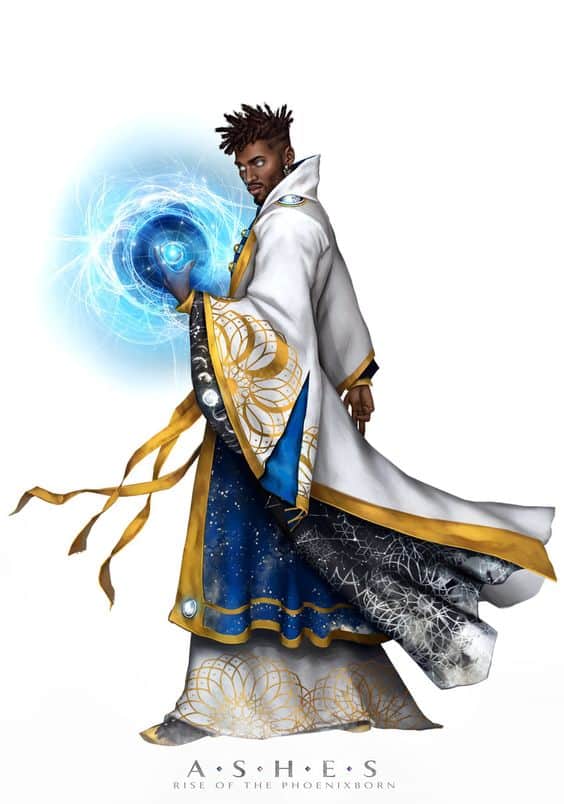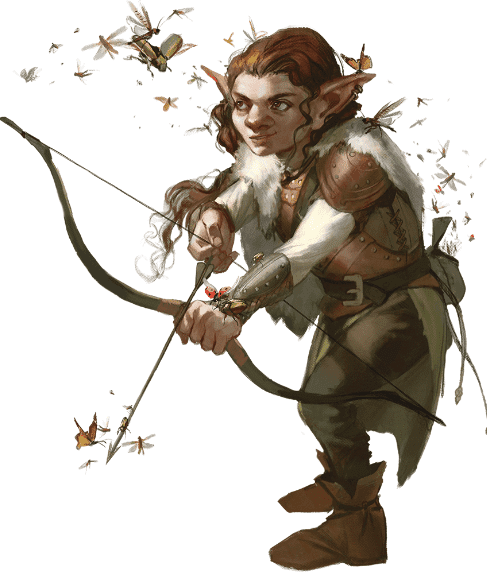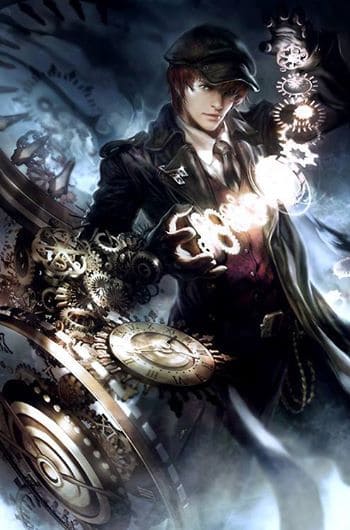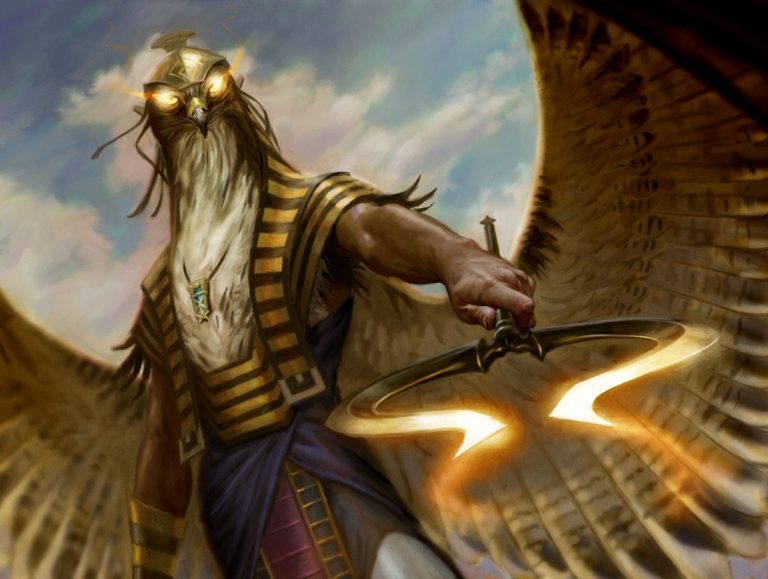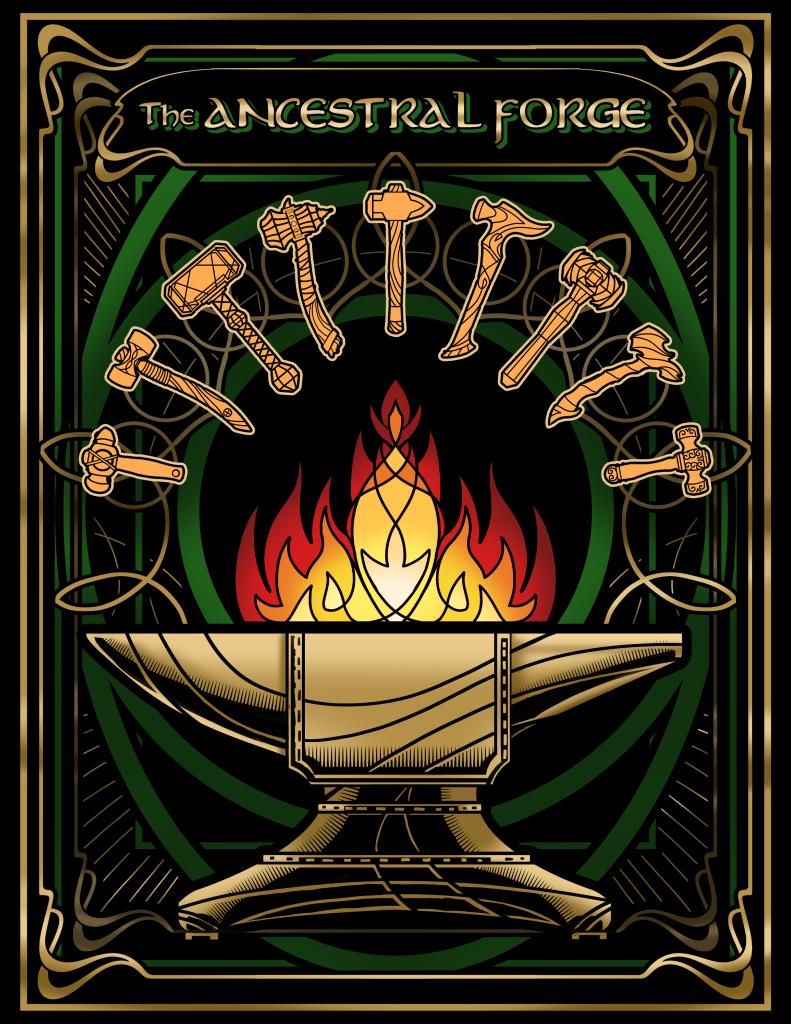D&D 5e: College of Glamour Bard Guide

D&D 5e: College of Glamour Bard Guide
Role in the Party
The College of Glamour Bard is a bard centered around using fey magic to manipulate and charm others. The flavor text of the subclass describes their performances as the stuff of legend and describes how both good and evil Glamour Bards exist.
There’s less to say about this bard than most of the others: it’s much more straightforward than something like the Lore Bard and somewhat less dramatic in power than something like the Eloquence Bard, and there’s less ambiguity than the Creation Bard to discuss. In general, you’ll be a normal bard who is particularly good at charming people, and your spell selection will likely reflect this.
Epic
Good
Meh
Bad
The College of Glamour Bard subclass is found in Xanathar’s Guide to Everything. Click here to pick up your own copy of Xanathar’s Guide to Everything!
College of Glamour Features
Mantle of Inspiration
When you join the College of Glamour at 3rd level, you gain the ability to weave a song of fey magic that imbues your allies with vigor and speed.
As a bonus action, you can expend one use of your Bardic Inspiration to grant yourself a wondrous appearance. When you do so, choose a number of creatures you can see and who can see you within 60 feet of you, up to a number equal to your Charisma modifier (minimum of one). Each of them gains 5 temporary hit points. When a creature gains these temporary hit points, it can immediately use its reaction to move up to its speed, without provoking opportunity attacks.
The number of temporary hit points increases when you reach certain levels in this class, increasing to 8 at 5th level, 11 at 10th level, and 14 at 15th level.
This is a simple alternative use for your bardic inspiration; notably, it affects multiple creatures and gives them a boost. It’s like a diet version of the Inspiring Leader feat, but from your subclass, there are tactical movement options you can do with it. Since you can protect multiple enemies and rearrange all your allies on the battlefield, this is a good feature, even if the temporary hit points become less dramatic at higher levels.
Enthralling Performance
Starting at 3rd level, you can charge your performance with seductive, fey magic.
If you perform for at least 1 minute, you can attempt to inspire wonder in your audience by singing, reciting a poem, or dancing. At the end of the performance, choose a number of humanoids within 60 feet of you who watched and listened to all of it, up to a number equal to your Charisma modifier (minimum of one). Each target must succeed on a Wisdom saving throw against your spell save DC or be charmed by you. While charmed in this way, the target idolizes you, it speaks glowingly of you to anyone who speaks to it, and it hinders anyone who opposes you, avoiding violence unless it was already inclined to fight on your behalf. This effect ends on a target after 1 hour, if it takes any damage, if you attack it, or if it witnesses you attacking or damaging any of its allies.
If a target succeeds on its saving throw, the target has no hint that you tried to charm it.
Once you use this feature, you can’t use it again until you finish a short or long rest.
This is an out of combat utility feature that allows you to charm a few people who watched and listened to your performance. You basically pick a number of people equal to your charisma modifier and at least a few of them will probably fail their wisdom saves, and then you get free fans for an hour. It will usually end almost immediately if any kind of fight breaks out, so it’s probably not useful for that, but you can use this to manipulate specific creatures if you’re performing for the orc bandits who captured your party or if you know an important noble is in the audience.
Even better, there’s no line like in Charm Person saying that the targets become aware that they were charmed. At the end of that one hour, the targets who failed their saves might not even know that they were charmed at all: it is up to your dungeon master though. Some NPCs might think about their recent actions and conclude that they were charmed, and some dungeon masters might be more prone to having NPCs think in this way than others.
Since this is a situational feature that doesn’t have that dramatic of a benefit, it’s somewhat meh, but it’s still useful to have when you need it.
There is a subtle problem with this feature: the flavor text of the Glamour Bard said that their performances could “lull a furious dragon into complacency”. This only works on humanoids, and no higher-level feature adds anything to your performances. So, unfortunately, there is some false advertising here.
Mantle of Majesty
At 6th level, you gain the ability to cloak yourself in a fey magic that makes others want to serve you. As a bonus action, you cast Command, without expending a spell slot, and you take on an appearance of unearthly beauty for 1 minute or until your concentration ends (as if you were concentrating on a spell). During this time, you can cast Command as a bonus action on each of your turns, without expending a spell slot.
Any creature charmed by you automatically fails its saving throw against the Command you cast with this feature.
Once you use this feature, you can’t use it again until you finish a long rest.
The Command spell is a solid no-concentration way of interfering with your enemies, and being able to cast it as a bonus action every round is sweet.
You can use Mantle of Majesty in a few ways: as a way to contribute powerfully to a fight when you’re out of spell slots and bardic inspiration uses, as a way to fill your turns while concentrating on a spell, and as a way to screw around and make an NPC do a bunch of silly things in a row out of combat. You also might want to talk to your DM about the Command spell before pulling out any unconventional commands like Backflip or Urinate, because you might not want to pause the game for five minutes as they scratch their heads figuring out how to resolve this.
The only things keeping this out of Epic territory are the conflicts with Bardic Inspiration as well as the bonus action spell rules: if you cast a spell on your turn with a bonus action, the only other spell you can cast before or after that spell is a cantrip with a casting time of one action. If you want to follow up on some long-lasting concentration spells with this feature, you will have to wait until your next turn since you probably can’t fit them in the same turn. Still, up to ten free uses of a solid 1st level spell as a bonus action? Excellent.
Unbreakable Majesty
At 14th level, your appearance permanently gains an otherworldly aspect that makes you look more lovely and fierce.
In addition, as a bonus action, you can assume a magically majestic presence for 1 minute or until you are incapacitated. For the duration, whenever any creature tries to attack you for the first time on a turn, the attacker must make a Charisma saving throw against your spell save DC. On a failed save, it can’t attack you on this turn, and it must choose a new target for its attack or the attack is wasted. On a successful save, it can attack you on this turn, but it has disadvantage on any saving throw it makes against your spells on your next turn.
Once you assume this majestic presence, you can’t do so again until you finish a short or long rest.
You use a bonus action and gain an incredibly powerful buff; your save DC is pretty high, creatures without legendary resistance probably don’t have great charisma save bonuses, and even if they succeed, they have disadvantage on saving throws against your spells. It’s unclear if this automatically applies if they succeed or if they need to follow through on the attack after succeeding for the disadvantage to apply, so talk to your DM.
Either way, making enemies just unable to hit you and imposing disadvantage on their saving throws is excellent. Remember that this only applies to attacks, so the dragon can still breathe on you without needing to make a saving throw.

Strengths
If you perform for crowds, and important people are in those crowds, you will be the best bard to have for that situation. Your special form of Bardic Inspiration also gives your party exceptional mobility and added defense, and at higher levels, you can compensate for a mediocre armor class with your powerful 14th level feature and land your strong spells even more reliably on certain enemies.
Weaknesses
Until 14th level, you don’t get any special defensive features as the Valor bard does, and your features are more situational than some other bards. Being able to move your allies won’t help if everyone is already in a good spot, and both legendary resistance and non-attack damaging effects will foil your capstone. Enthralling Performance, your most iconic level 3 feature, is much less broadly useful than your alternate inspiration use.
Best Race Options
The Glamour Bard has a fey flavor, so you might as well just go full Fairy. The flying speed will keep you out of danger since you don’t get any extra defense until level 14, and the extra spells are nice.
The Changeling race goes together excellently with your features; being able to change your appearance is very useful if you get caught doing fey charming antics, and it’s a lot of fun even when you’re not avoiding the town guard.
The Satyr is perfect: you gain proficiency in Performance and Persuasion, you’re proficient in another musical instrument, you can jump further, and you have advantage on saving throws against spells (but not other magical effects). It’s a solid combination of theme and mechanical power.
Choosing the Right Skills
Performance is more important than on other bards since one of your features relies on you performing. You might as well do a good job at it. Deception and Persuasion are also almost mandatory for you, and Intimidation is the one charisma skill you can skip.
You’ll want Perception since it’s a commonly used skill with sometimes dramatic consequences for success or failure, and Insight is handy for any character who wants to be the perfect social encounter expert.
Acrobatics proficiency will aid you in some physical tasks, including possibly some performances, as well as help you escape a grapple. Stealth and Sleight of Hand are also possibilities, but you might prefer to march out into the open and charm people.
Fitting Feats
Fey Touched is perfect; you can boost an odd charisma score, you get a free Misty step and one other applicable spell (possibly Tasha’s Hideous Laughter, which is fun on any bard), and it has Fey in the name.
The Lucky feat will help you protect your concentration while your level 6 feature is active, as well as save you from unusually low rolls in social situations. However, if you suspect you’ll have a lot of combats per day every time you do adventuring activities, you may want to consider War Caster or Resilient (Constitution) instead.
If you want multiple ways of handing out temporary hit points to the entire party, Inspiring Leader will give you another. Your allies will have more temporary hit points than they know what to do with, and when they lose those temporary hit points, you can throw more into them with your Bardic Inspiration. Specializing in temporary hit point distribution can help you avoid stepping on the toes of another party member who does a ton of normal healing.
Optimal Backgrounds
Feylost is a solid way to explain how you learned your Glamour Bard magic. If you’re a musician who’s stuck in the Feywild, why not take music lessons from those Eladrin over there? This background is more useful if the Feywild is an important part of the campaign.
An evil Glamour Bard will love the Charlatan background. The False Identity feature will let you stay in a town without fear of arrest if your other identity is caught doing something devious, and you can fill a sort of roguish role in a party.
A good Glamour Bard might pick the Folk Hero background. The Defining Event for a Folk Hero includes a fey blessing option, as well as some other thematic possibilities. This is great if you wanted to trick and oppose tyrants while helping ordinary people.
Multiclassing Options
The College of Glamour doesn’t have any special synergy with other subclasses out there, but there are still some solid options:
The Archfey Warlock’s Fey Presence is underwhelming, and the extra spells are redundant with what you already have, but maybe you can flavor the Hexblade features as being more Feywild themed than Shadowfell themed. You don’t get as much out of Hexblade as some other bards, but the medium armor proficiency, Shield spell, and Eldritch Blast are all nice. If you want to use a weapon, using charisma to attack with a rapier and applying Booming Blade is a somewhat weak but still usually viable option.
Taking one level of Divine Soul Sorcerer will give you several excellent 1st level spells, as well as a 2d4 you can add to a saving throw or attack roll.
If you want to increase your healing power and defensive potential, a level of Life Cleric will grant you proficiency in all armor and boost any healing spell you cast. This dip is less effective at higher levels, so you might prefer Order.
Would I recommend playing a College of Glamour Bard?
If you know for sure you’ll be in a campaign where your Enthralling Performance will be useful, I can absolutely recommend the College of Glamour Bard. If you’re in a dungeon crawling campaign and probably won’t have any opportunities to perform, you might want to reconsider, but that alternative use for your Bardic Inspiration will still be a big help in tricky dungeon combats. It doesn’t do anything insane compared to other subclasses, and it’s a fine middle of the road bard.


